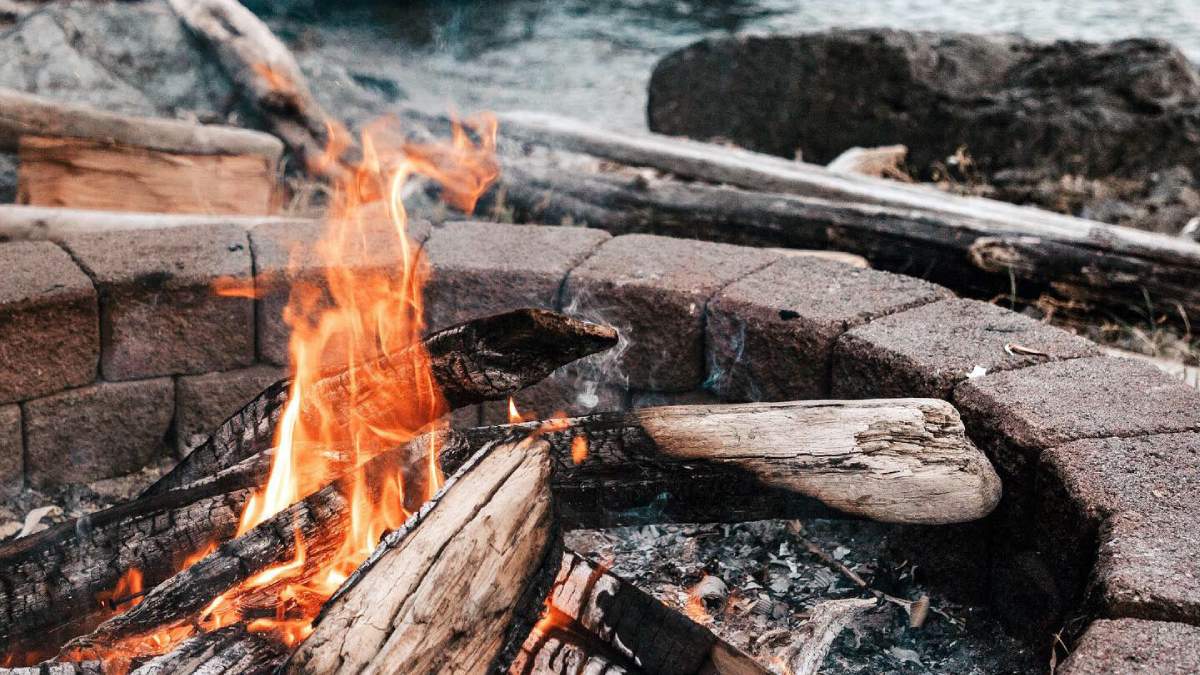A campfire tends to be the symbol and highlight of camping trips, but they’re also one of the leading causes of forest fires. Enjoy the relaxing moments that bond us around a campfire without it turning into an emergency by following RecProtect’s campfire safety tips:
Before a Campfire
- Check for Fire Bans and Restrictions in the Area – Local environmentalists and fire centres watch weather patterns, fire hazards/dangers, and type/level of fire activity in the area. These factors impact the combustibility of wood and risk of forest fires, which they use to determine how safe it is to have a campfire.
- Use the Provided Fire Pit/Ring – These areas are contained and set up safe distances from trees, shrubs, other flammable materials and likely from where your trailer is set up in order to avoid stray fires.
- Clear the Area of Dead/Dry Debris – If sparks or ambers fly from the fire this debris could potentially catch, resulting in danger.
- Use Kindling, Twigs or Newspapers as Starter – These will get the fire started initially and be able to successfully catch the larger pieces that will continue your fire.
- Use a Match or Lighter to Start your Fire, Not Gas or Accelerants – Gasoline and accelerants can quickly and unpredictably make a fire unmanageable and difficult to control.
- Pay Attention to the Wind – Gusts of wind can enlarge fires uncontrollably, or create more sparks and embers that can spread fire outside the safety of the pit/ring.
During a Campfire
- Place Extra Wood, and Other Flammable Items, Away from the Fire – Avoid something catching on fire by keeping flammable objects a safe distance away.
- Don’t Leave Your Fire Unattended – Winds can quickly change and carry embers a great distance, having a set of eyes consistently on the fire ensures a quick response can be carried out if required.
- Keep a Bucket of Water Close – You can use the water to dampen the ground around the fire pit/ring, douse a runaway flame, or extinguish the campfire at the end of the night.
- Be Aware of the Size – Keeping your campfire small ensures it is manageable and easy to extinguish if/when needed.
- Be Careful with Children and Pets – Not allowing children or pets to play or run around the fire can help avoid fire-related injuries while camping.
After a Campfire
- Properly and Completely Extinguish the Fire When Done – Whether you allow it to burn out naturally or utilize water to smother your fire, ensure that is completely put out, down to only coals and ashes, before going into bed for the night or leaving the campsite. Stirring the ashes with a shovel can also help ensure everything within the pit/ring is wet and, therefore, will not reignite.
If a campfire is not properly built, maintained and extinguished it can quickly become unsafe and a hazard to the people, animals, and land around it. Taking these responsibilities seriously results in making long-lasting memories around the pop, glow and warmth of a campfire.
Get Coverage for Your Next Outdoor Adventure with Recprotect
At RecProtect, we recognize the importance of promoting safety during your outdoor adventures. That’s why we offer comprehensive insurance for your recreational vehicles. Whether you’re a seasoned camper or new to the camping scene, our coverage protects your recreational vehicles so you can fully enjoy the warmth of the campfire, while knowing that your vacation is safeguarded with the right recreational insurance.

